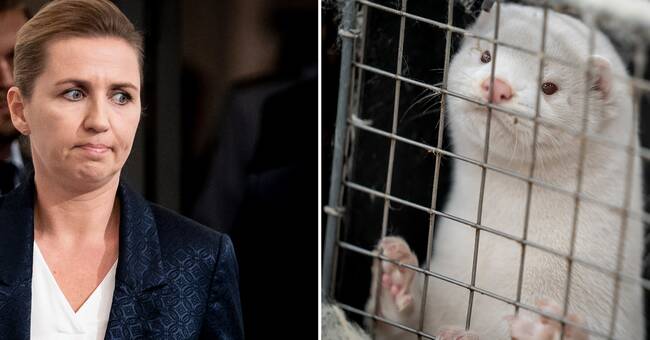It was on November 4 last year that the Social Democratic government announced that all minks - infected and healthy - would be killed.
A mutation in the coronavirus, which has spread to humans, had been detected in herds and there was a fear that the variant would affect future vaccination against covid-19.
A few days after the press conference, the revelation came that there was no legal basis for killing even healthy animals, but as recently as just over a month ago, Prime Minister Mette Frederiksen (S) said that it was not her responsibility.
- I do not think it can be said that I bear the responsibility because I was not allowed to receive the necessary information (before the decision was made), Frederiksen said at a press conference in early November this year.
Went to the grave
Today, Frederiksen will be questioned by the Mink Commission, which sets out the tours in what is described as one of the biggest political scandals in modern times in Denmark.
More than 15 million minks were killed and the country's fur industry, which was one of the largest in the world, went to the grave in practice.
During previous mink interrogations, so far nothing has come to light that contradicts that Frederiksen did not tell the truth about when she found out about the lawlessness in the decision.
The only political victim that the mink scandal has reaped is the Minister of Food, Agriculture and Fisheries Mogens Jensen (S), who resigned in mid-November last year.
During the autumn interrogation, it is precisely the Ministry of Food, Agriculture and Fisheries that has been pointed out as responsible for ensuring that everything went right.
- That the minks would be killed is a political decision that we make.
After all, it is the Ministry of Food, Agriculture and Fisheries that ensures that the assignment is carried out, including that the legal basis is in place, said Minister of Finance Nicolai Wammen (S) during his interrogation.
No verdict
The Mink Commission will continue with its hearings in December and January.
The Commission will not deliver a judgment when it finalizes its mandate in April next year.
What the next step will be is up to the Folketing to decide.
A possible scenario is that Prime Minister Mette Frederiksen is brought before a Supreme Court, but a majority in the Danish parliament must then support such an indictment.

